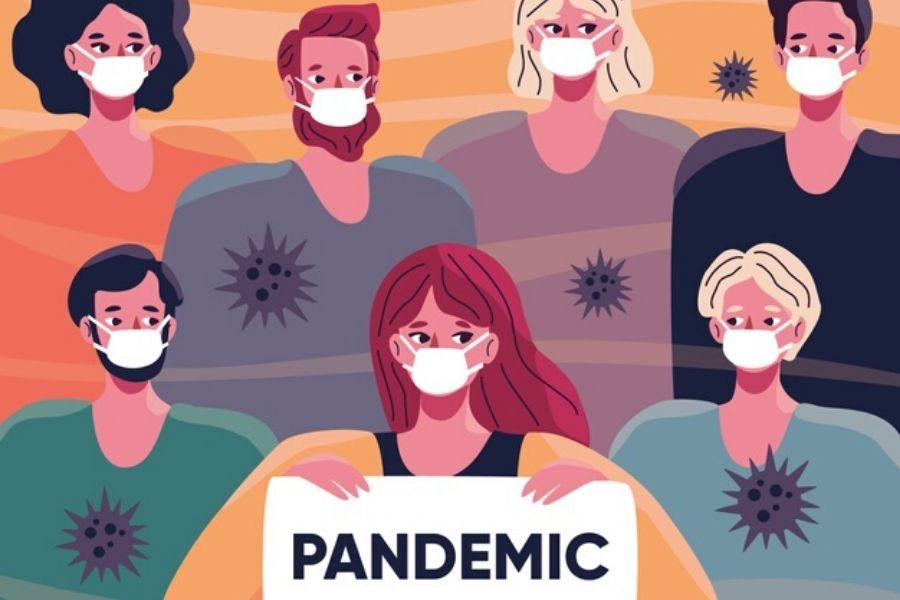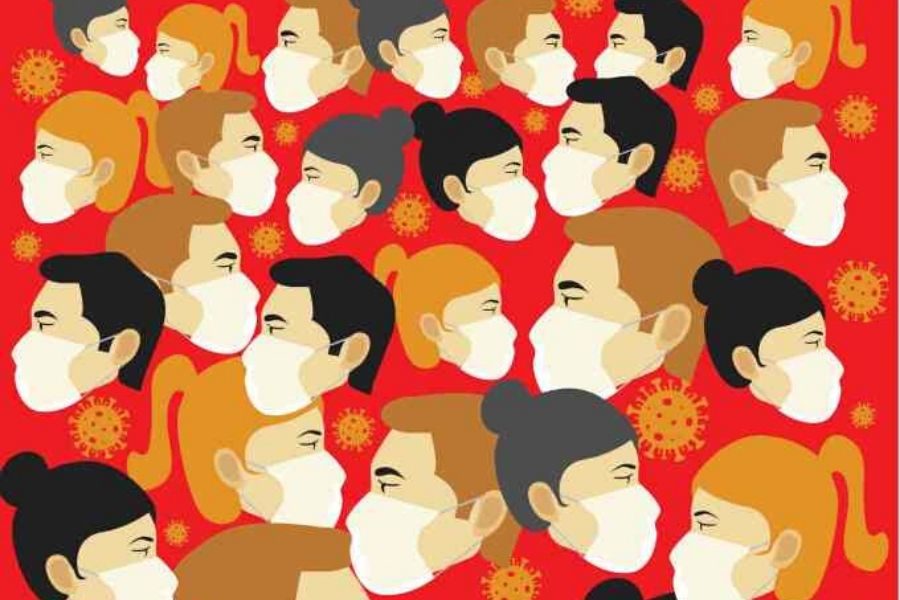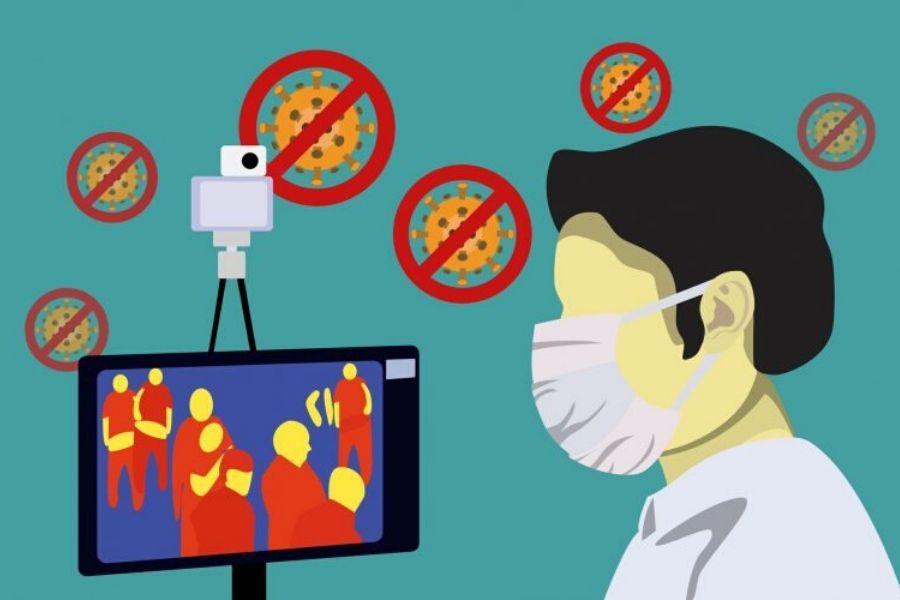An A-Z Greek glossary of Covid-19

Its rich history makes Greek so versatile as to offer a description for every conceivable situation or feeling, with a plethora (there’s one!) of words to describe a medical condition or psychological state of mind. For a language that has influenced complex concepts in philosophy, maths, science, medicine, astronomy and a slew of languages, Greek is naturally the language of choice to describe the strange, multi-layered reality that the pandemic presents. Athens Insider breaks down Corona terminology to its very Greek roots.
- asymptomatic (adjective): Showing no symptoms of a particular disease – from a-, privative prefix, + symptomatic based on Greek sumptōma ‘chance, symptom’, from sumpiptein ‘happen’ from συν- (sun-, “together”) + πίπτω (píptō, “I fall”).
- Corona(virus) (noun): The word corona means crown. The scientists who in 1968 came up with the name “coronavirus” which is derived from Greek κορώνη korṓnē, “garland, wreath” as they thought it resembled a solar corona: the bright crown-like ring of gasses surrounding the sun that is visible during a solar eclipse.

- diagnosis (noun): Identification of an illness by examination of the symptoms – from the Greek, from dia ‘apart’ + gignōskein ‘recognize, know’ or”know apart” (from another).
- Dystopia (noun): If ‘utopia’ denotes an ideal or dream society, ‘dystopia’ is the word used to refer to an imagined nightmare world – normally the world of the future. An imagined state or society in which there is great suffering or injustice, typically one that is totalitarian or post- apocalyptic. discovered and described.’ From dys: ‘bad’ and topos ‘place‘.

- pandemic (adjective) Diseases, “incident to a whole people or region” from Greek pandemos “pertaining to all people; public, common”, from pan- “all”(see pan-) + dēmos “people” (see demotic). Distinguished from epidemic, which may connote limitation to a smaller area.
- pathogen (noun): A micro-organism or germ such as a bacterium or virus that can cause disease – from Greek pathos ‘disease’ (from PIE root *kwent(h)- ‘to suffer’) + gen ‘producing’.
- Paracosm (noun): Paracosm, as used in English, comes from the ancient Greek παρά (pará, ‘beside’, ‘alongside’) and κόσμος (kósmos, ‘world’, ‘universe’). This word denotes a detailed imaginary world. One that we’ve been living in recently thanks to the lockdown but will hopefully soon emerge stronger from.

- Sophrosyne (noun): The Ancient Greek concept of an ideal of excellence of character and soundness of mind, which when combined in one individual leads to other qualities, such as temperance, moderation, prudence, and self-control. σωφροσύνη (sōphrosúnē, “soundness of mind, prudence, temperance”) from σώφρων (sṓphrōn, “sane, moderate, prudent”) (from σῶς (sôs, “safe, sound, whole”) + φρήν (phrḗn, “mind”)) + -σύνη (-súnē, abstract noun suffix). Greeks recently have been highly praised for being wise and prudent in dealing with the pandemic.
- zoonotic (adjective): From zoo- ‘of animals’ + Greek nosos ‘disease’. Disease communicated to humans by animals, “plural zoonoses”, describing a disease that can be transmitted from animals to humans.














